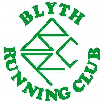







Health and diet tips
Do you feel tired half way through a work out? Try changing your diet. Eating wisely can increase your energy. Eating breakfast each morning, refuelling your body with a meal or snack every four to five hours, and choosing the right foods such as:
Bagels
 Bagels contain complex carbohydrates. Unlike fats and proteins, carbohydrates are stockpiled in the muscles and liver as glycogen, a readily available energy source our bodies can tap as needed. These fuel reserves ensure your energy stays at an even keel.
Bagels contain complex carbohydrates. Unlike fats and proteins, carbohydrates are stockpiled in the muscles and liver as glycogen, a readily available energy source our bodies can tap as needed. These fuel reserves ensure your energy stays at an even keel.
Bagels are a great energy snack for staving off between-
Spinach, Broccoli & Cabbage
 These greens are packed with magnesium. The average person eats only about three fourths of the RDA. This level can leave you feeling tired. Muscles rely on magnesium to convert carbohydrates into usable energy.
These greens are packed with magnesium. The average person eats only about three fourths of the RDA. This level can leave you feeling tired. Muscles rely on magnesium to convert carbohydrates into usable energy.
Beans
 Low levels of iron are a common cause of sluggishness. Although lean red meat is the best source of iron, two or three servings of beans, for example black beans, red or white kidney beans or chick peas can be a substitute. Iron is the backbone of the energy producing process. It is crucial to fuelling your organs and muscles with oxygen.
Low levels of iron are a common cause of sluggishness. Although lean red meat is the best source of iron, two or three servings of beans, for example black beans, red or white kidney beans or chick peas can be a substitute. Iron is the backbone of the energy producing process. It is crucial to fuelling your organs and muscles with oxygen.
Extra servings of beans or other protein-
Tuna
 Fish such as tuna, is a high protein food. It also contains an amino acid called tyrosine. Once digested, tyrosine helps to manufacture brain neurotransmitters called norepineophrine and dopamine. These neurotransmitters bring your brain to full attention, helping you to perform mental activities such as concentration under stress.
Fish such as tuna, is a high protein food. It also contains an amino acid called tyrosine. Once digested, tyrosine helps to manufacture brain neurotransmitters called norepineophrine and dopamine. These neurotransmitters bring your brain to full attention, helping you to perform mental activities such as concentration under stress.
Without adequate protein your muscles can't recover and rebuild as quickly after a workout.
Strawberries
 Fruits are a great source of complex carbohydrates and strawberries are especially rich in vitamin C. Vitamin C helps your body absorb the iron it needs to re-
Fruits are a great source of complex carbohydrates and strawberries are especially rich in vitamin C. Vitamin C helps your body absorb the iron it needs to re-
Oatmeal / Porridge
 Oatmeal is high in fibre, which slows digestion. This means that your body can get a steady stream of energy as carbohydrates gradually flow into your bloodstream. You could eat a chocolate bar or a slice of cake to get carbohydrates, but that fast blast of energy from simple carbohydrates is typically followed by a quick crash.
Oatmeal is high in fibre, which slows digestion. This means that your body can get a steady stream of energy as carbohydrates gradually flow into your bloodstream. You could eat a chocolate bar or a slice of cake to get carbohydrates, but that fast blast of energy from simple carbohydrates is typically followed by a quick crash.
An avarage serving of oatmeal makes your blood sugar stay higher for longer so you have more energy and can go longer before feeling hungry again.
Bananas
 A banana is a great energy snack. Sugars in bananas, and in other fruits, are full of easily digested carbohydrates. Bananas supply a heavy dose of potassium, an electrolyte that helps maintain muscle and nerve functions and helps prevent overheating.
A banana is a great energy snack. Sugars in bananas, and in other fruits, are full of easily digested carbohydrates. Bananas supply a heavy dose of potassium, an electrolyte that helps maintain muscle and nerve functions and helps prevent overheating.
Potassium isn't stored by the body for long periods, so your levels can drop during strenuous exercise. The nutrient is lost through excessive sweating. Telltale signs of low potassium include aching muscles, irregular heartbeat, slow reflexes and a feeling of confusion.